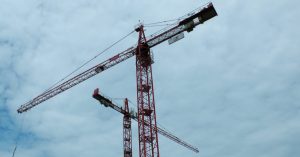What to do if my home has been occupied

Someone occupies part of the land or house that belongs to me, what do I do?
What to do if my home or land has been occupied
In this article I am not referring to the famous problem generated by “squatters” who knowingly enter a home that does not belong to them, and remain in the same until they are finally expelled by court order. But to the problem that arises when there is a discrepancy in the limits of two pieces of land or houses (walls, walls, fences, etc.) with respect to what the property title says or the Property Registry itself.
Let’s take the case of the owner of some land or a house who suddenly discovers that according to the title deed his farm should be larger than it actually is< /strong>. Being the neighbor who occupies part of that space that according to the title belongs to him. We already know that when we talk about title, we are referring to the sales contract, deed of award by inheritance, or any other document that proves ownership of a property.
Another example that raises the same controversy, may be the owner of two adjoining houses that alters the distribution of the walls, leaving one larger than the other. Once the owner dies, his heirs inherit these two houses, but the heir who is awarded the smaller house claims to return both houses to their original state, so that both once again have the dimensions and the limits that appear in the property title and in the Land Registry.
In these cases, the occupying party usually acts in good faith, since they are unaware that they are occupying a space that appears as someone else’s domain in a property title. He probably purchased the farm in the state it is currently in and has not been actively involved in modifying the walls or boundaries. In this case, are you obliged to return the occupied space to your neighbor?
The question deserves a positive answer, especially if the Land Registry establishes that the rightful owner is another. Occupying land in the belief that it belongs to you, even if you have paid a price to acquire it, is not enough to prevent its rightful owner from claiming it from you.
But as always in Law, not everything is black or white, there is a wide range of grays that allows both parties to defend their different positions and interests . It is advisable to consult with a lawyer specialized in civil law the specific case, to guess the possibilities of each interested party, however we will mention below some of the most effective defense tools.
For conflicts derived from the non-registration of the property in the Property Registry, it is convenient to review our article Problems of properties not registered in the Property Registry.
Acquisition by occupation
Although it may seem surprising, mere occupation is one of the forms allowed by our Civil Code for the acquisition of real estate (art. 609 and 1959 Civil Code). It is called “prescriptive domain acquisition”.
In a case such as the one raised in this article, the occupation must have been maintained uninterruptedly for a period of 30 years, even when the data from the Property Registry indicate that the domain belongs to a third party and also when the property has been occupied in bad faith. For these purposes, bad faith is interpreted as the occupation knowing that the property does not belong to the occupant.
Therefore, whoever appears as the owner in the property title and in the Registry, cannot claim the return of the space that has been occupied, if the occupant has owned the farm for an uninterrupted period of 30 years.
Vindication of occupied land
If the occupant has remained in possession of the property for a period of less than 30 years, or for a longer period without interruption, the owner who appears in the title to claim the return of the occupied land.
The legal tool used to claim the refund is the so-called “vindication action”. The lawyer must bring this claim action before the courts and present the documentation proving ownership of the home or occupied land. We have analyzed the requirements of this legal action in the article How to get my property returned to me.
However, the courts will only admit the claim action if the claimed area is perfectly identified and delimited. It is not always clear or easy to establish which dividing lines mark the property title.
Unless the limits are perfectly determined, without any possible room for doubt, the “delimitation action” must be filed jointly with the “claim action”.
Occupied area boundary
The occupier may argue in his defense that the claimed land is not properly delimited. The claim may end up being frustrated for that reason. Hence, as we pointed out, it may be necessary to file the “demarcation action” together with the “vindication action”.
The “demarcation action” consists of requesting the court to previously declare the limits of each property. Interested parties may propose and justify the limits that in their opinion conform to the property title. We analyze in greater depth the requirements of this legal action in the article How to get my property returned my property.
Once the Court determines the dividing lines between two farms, the area claimed will be perfectly identified and the return of the occupied space may be agreed.
Compensation for damages
The owner of the property whose part has been occupied, may claim from the occupant compensation for damages and losses, in addition to requesting the return of the occupied area, through the so-called “compensatory action”.
In our opinion, a compensation claim that includes the entire time that the occupation lasted would be debatable. It is difficult for the courts to accept a claim of these characteristics. However, the compensation is fully justified if there was a requirement to the occupant prior to the legal claim.
The “compensation action” can be brought under art. 1,101 of the Civil Code, to compensate the damages caused by the illegal occupation of a property. The judgment of the Provincial Court of Granada (Section 4) of May 24 admitted a compensation claim of these characteristics in the following terms:
“We show our conformity in the establishment of compensation for damages derived from the refusal to deliver the home from the date of the conciliation act, since she must be deemed to have possessed it in bad faith from that moment in which she opposed the return knowing that both she and her deceased did not have a title that justified such possession, without it being possible to base it on the previous complex relationships when the preceding sentence He did not recognize his cause any rights. (…)
Conclusions:
First.- Sometimes the limits established in the property titles and the data from the Property Registry of two adjoining properties do not agree with the division between one and the other.
Second.- The solution of the conflict requires a prior demarcation of both properties, consisting of delimiting the limits of each of them in accordance with their titles . In case of controversy, the courts must rule.
Third .- The occupant of part of a property that does not belong to him, without the consent of the legitimate owner of it, must return the occupied space .
Fourth.- The owner of the occupied area may request, in addition to the return of the land that belongs to him, a claim for damages.



















